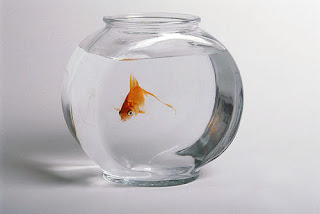I would like to introduce you to a blog I have been following for a few months now.
It is written by a Canadian, who goes under the name of
Palinode and whose parents live in the wonderfully named university town of Saskatoon. - the intellectual equivalent of Looney Tunes in my paronomasia-obsessed imagination.
A palinode, which is not, by the way, a friend suffering from adenoids no matter how much it seems it should be, is defined as a poem in which the poet retracts a view or sentiment expressed in a former poem.

Palinode, the blogger, is best described as a crypto-sardonic anarchist with a distinct grasp on language and a forensic eye for human frailty. His observations are funny if somewhat paranoid. This
post, in particular, I like.
I have been trying to think of a poem of retraction, the only one I can find is among Shakespeare's sonnets. In Sonnet 71, he writes:
No longer mourn for me when I am dead
Than you shall hear the surly sullen bell
Give warning to the world, with the vilest worms to dwell:
Nay, if you read this line, remember not
The hand that writ it, for I love you so
That I in your sweet thoughts would be forgot,
If thinking on me then should make you woe.
Or if (I say) you look upon this verse,
When I, perhaps, compounded am with clay,
Do not so much as my poor name rehearse,
But let your love even with my life decay;
Lest the wise world should look into your moan
And mock you with me after I am gone.
In Sonnet 74, he seemingly revises his opinion:
But be contented when that fell arrest
Without all bail shall carry me away;
My life hath in this line some interest,
Which for memorial still with thee shall stay.
When thou reviewest this, thou dost review
The very part was consecrate to thee;
The earth can have but earth, which is his due,
My spirit is thine, the better part of me;
So then thou hast but lost the dregs of life,
The prey of worms, my body being dead,
The coward conquest of a wretch's knife,
Too base of thee to be remembered:
The worth of that, is that which it contains,
And that is this, and this with thee remains.
I am sure there are better, probably famous, examples of palinodes but poetry is not my forte. If anyone knows of better, please direct.







































 You can see the dangers.
You can see the dangers.

 As the interview, at just under eight minutes. is longish, I have not included it, (go
As the interview, at just under eight minutes. is longish, I have not included it, (go 




